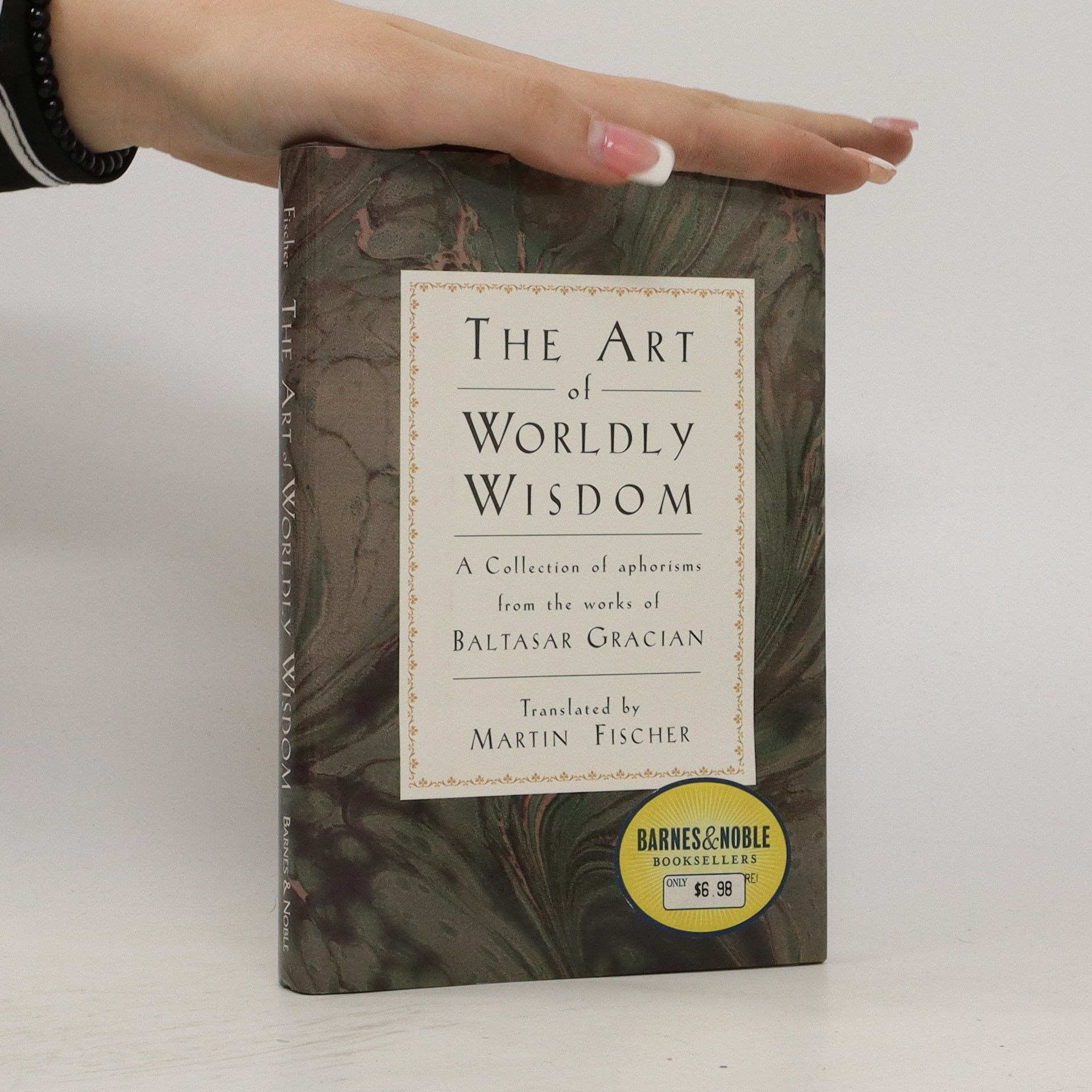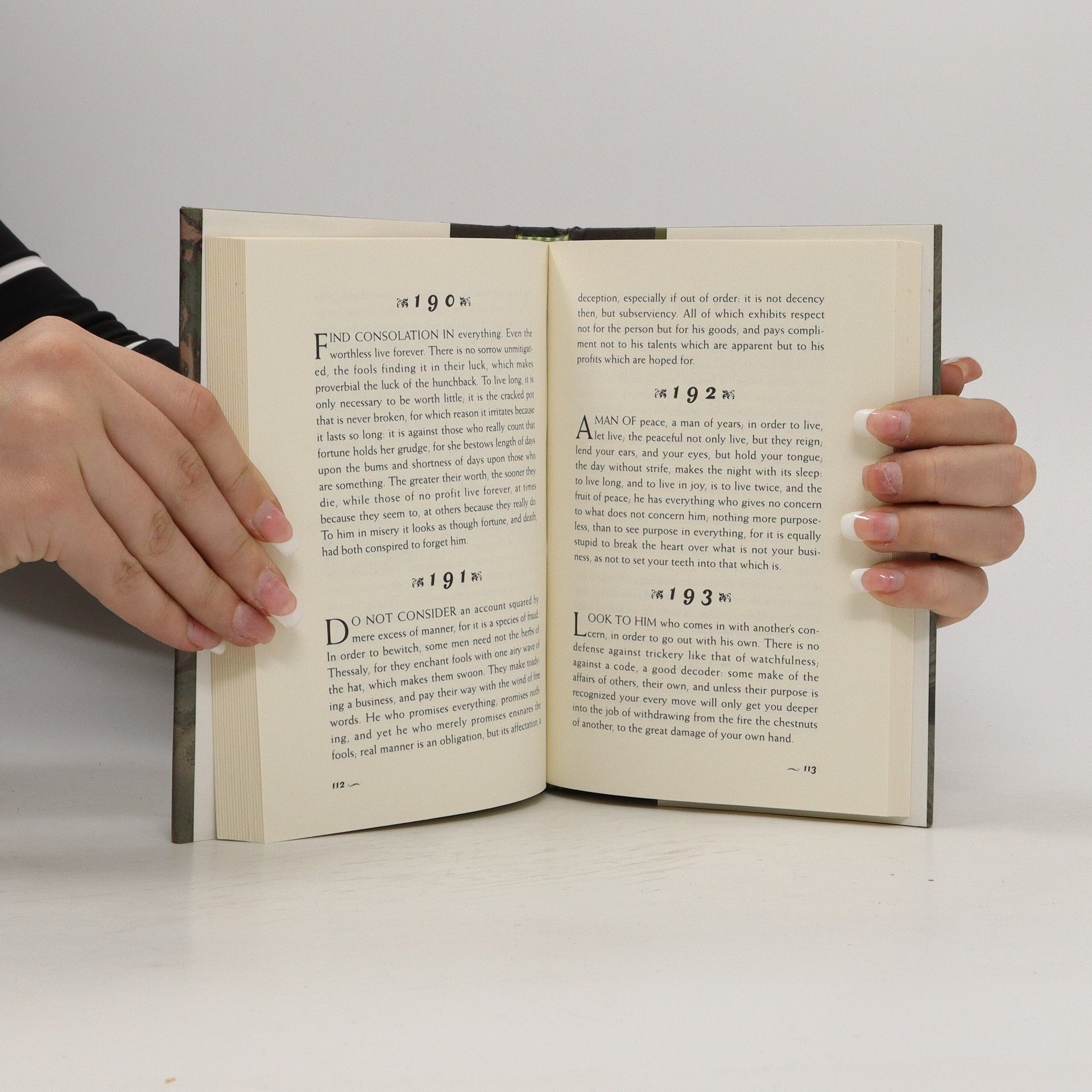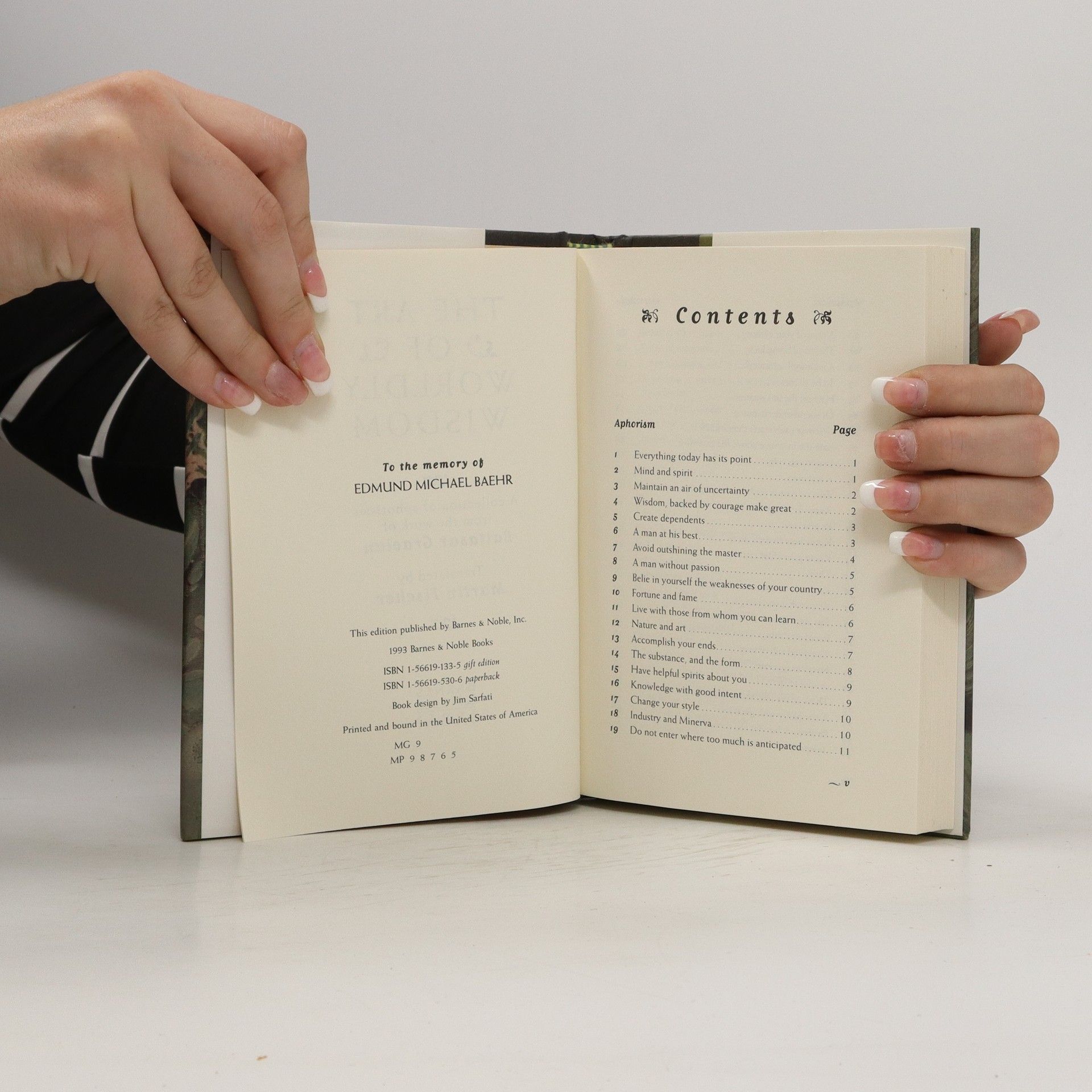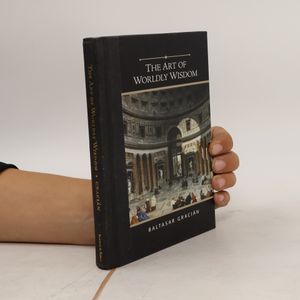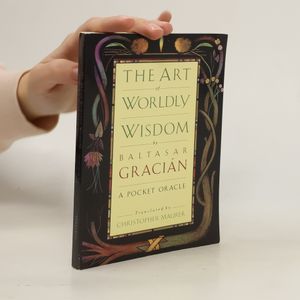Agotado
Más información sobre el libro
The remarkable best-seller -- a long-lost, 300-year-old book of wisdom on how to live successfully yet responsibly in a society governed by self-interest -- as acute as Machiavelli yet as humanistic and scrupulously moral as Marcus Aurelius.
Compra de libros
The Art of Worldly Wisdom, Baltasar Gracián
- Idioma
- Publicado en
- 1993
- product-detail.submit-box.info.binding
- (Tapa dura)
Te avisaremos por correo electrónico en cuanto lo localicemos.
Métodos de pago
Nos falta tu reseña aquí
